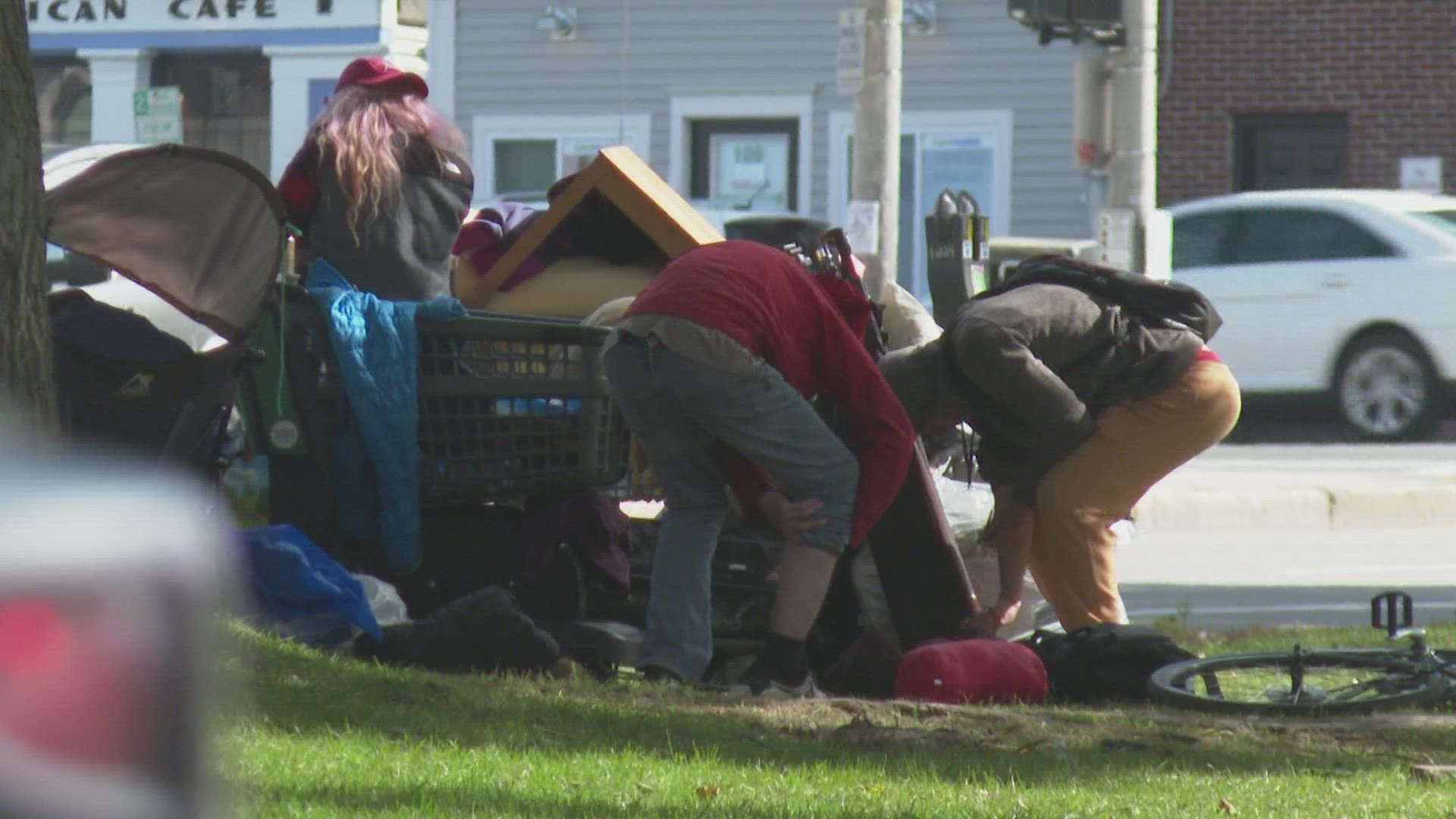PORTLAND, Maine — Portland's director of health and human services said the city is unable to meet the demand for shelter for people experiencing homelessness.
Kristen Dow said the city has 300 shelter beds available, but that hundreds of people need the beds on a nightly basis.
"We have 300 municipally operated shelter beds in the city of Portland and we have been consistently providing emergency shelter to over 1000 individuals a night for at least the past year," Dow said.
Portland is the only city in Maine that operates its own shelter. Other cities rely on nonprofits and nongovernmental groups to shelter people.
The people who need shelter and services come from all over the state, according to city data.
"They may come to Portland because it is the only shelter bed that is available," Dow said.
The city expects the new Homeless Services Center to open in the spring of 2023. It will replace the Oxford Street shelter and add 54 more beds.
"We continue to see the numbers grow at our single shelter in particular. We are close to capacity if not at capacity most nights," Dow said.
On Tuesday, Preble Street will open its new shelter, Elena's Way, which will add 40 beds, according to Andrew Bove, vice president of social work for Preble Street.
"You could fill it tonight if it was open. We could fill it immediately," Bove said.
Prior to the pandemic, the city used Preble Street's resource center as an overflow shelter space.
"It was really shouldering quite an untenable amount of responsibility. Hundreds of people every day in a very cramped space," Bove said.
"There comes a point when one municipality can't solve the entire problem for what we're seeing as a state," Dow said.
City staff said people with substance use and untreated mental health issues also tend to be those who cost taxpayers the most money through emergency room visits, incarceration, police calls, and EMS calls. They said those people are more likely to camp out in parks, trails, and other public spaces which are unsafe and make getting medical help or casework much more difficult.
Dow said the city added $44 million more to its Health and Human Services budget for the fiscal year 2023, more than double its FY22 budget.
Dow added the city is planning in case it loses reimbursement money from FEMA that helps pay for some of the shelter options for people experiencing homelessness.
"This problem isn't going away. We have to find solutions. As we've seen over the last year, the crisis continues to grow. So it could be your neighbor next. With certain state funding going away, it could be any of us at any point in time. No one chooses to be homeless. This is not something that someone wakes up one morning and wants to happen," Dow said.

